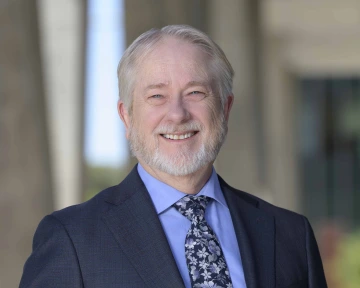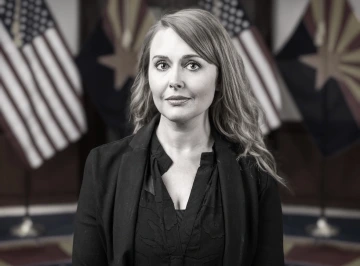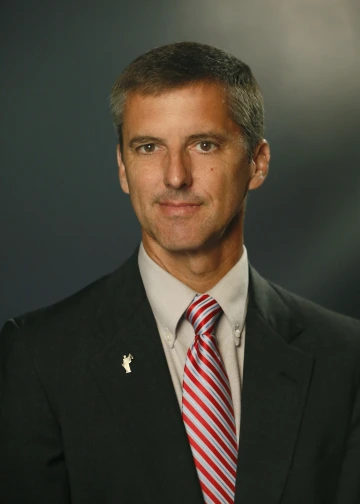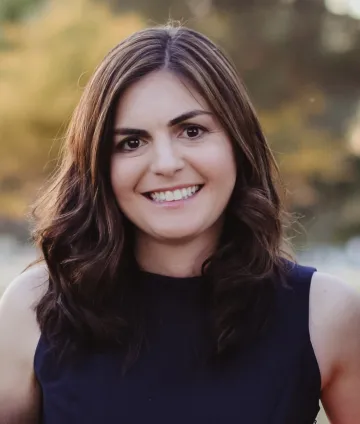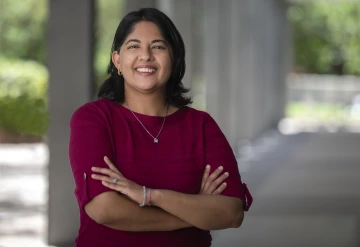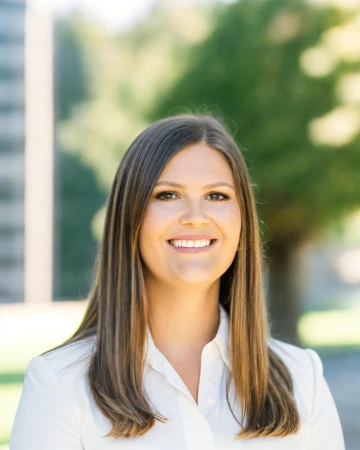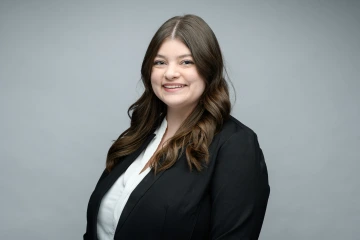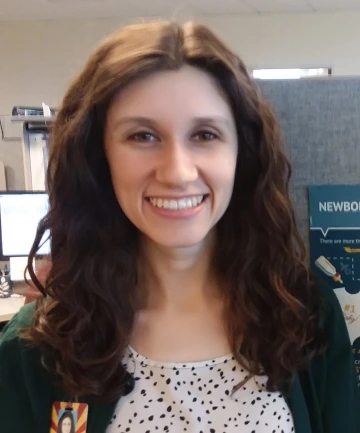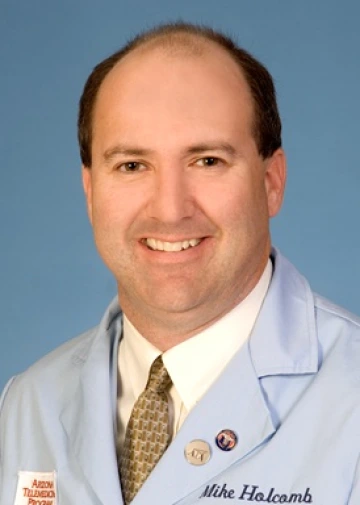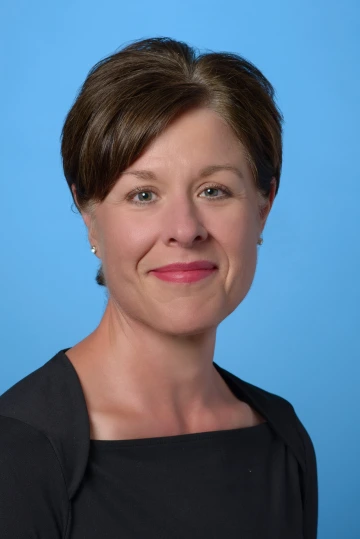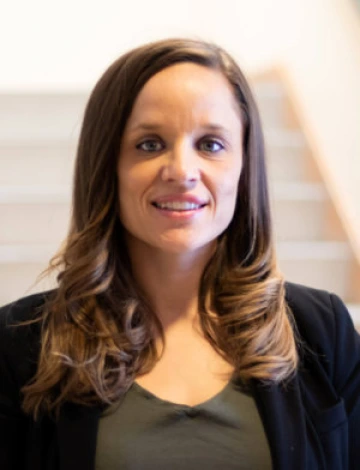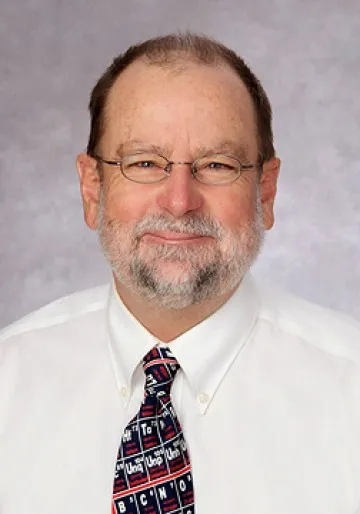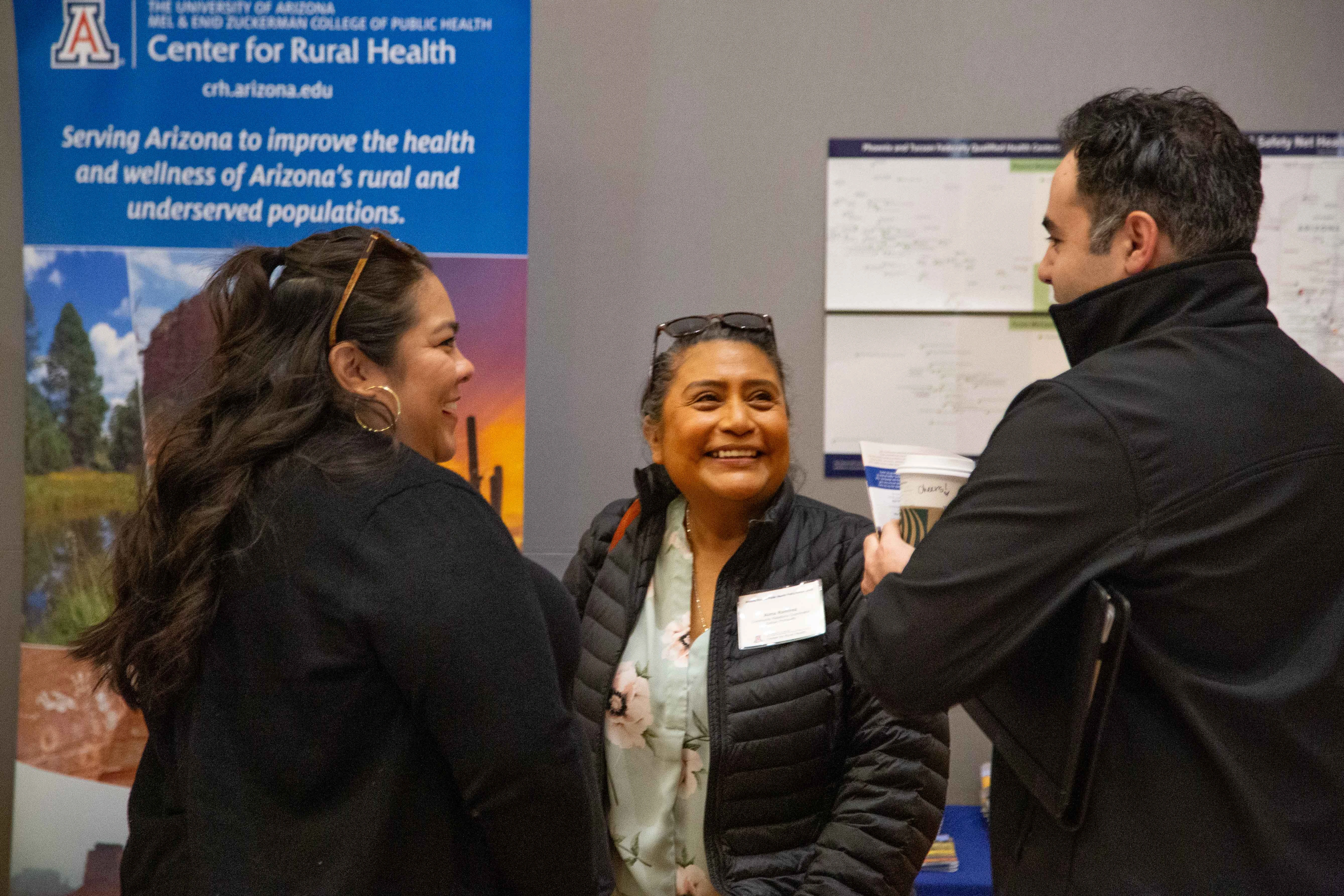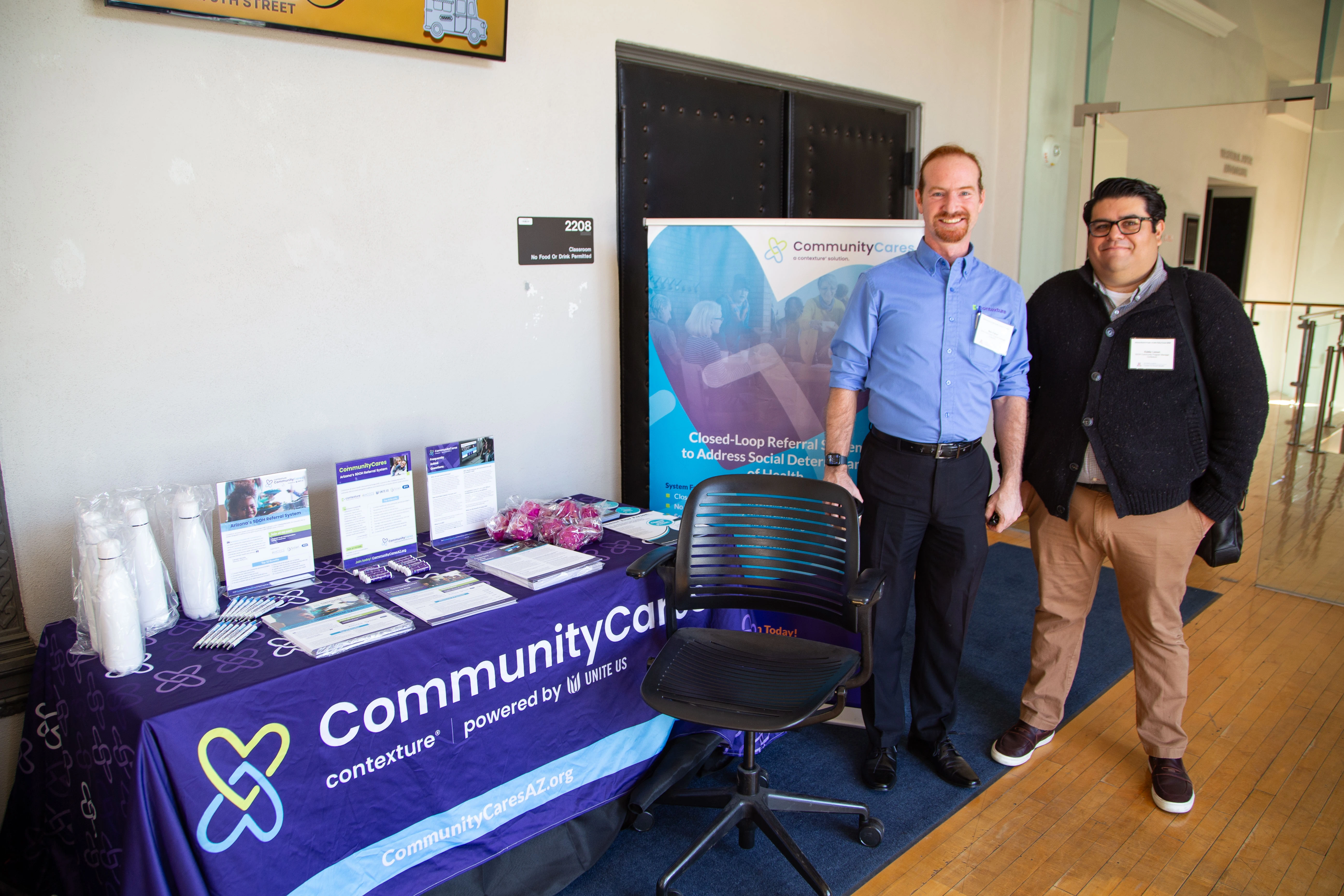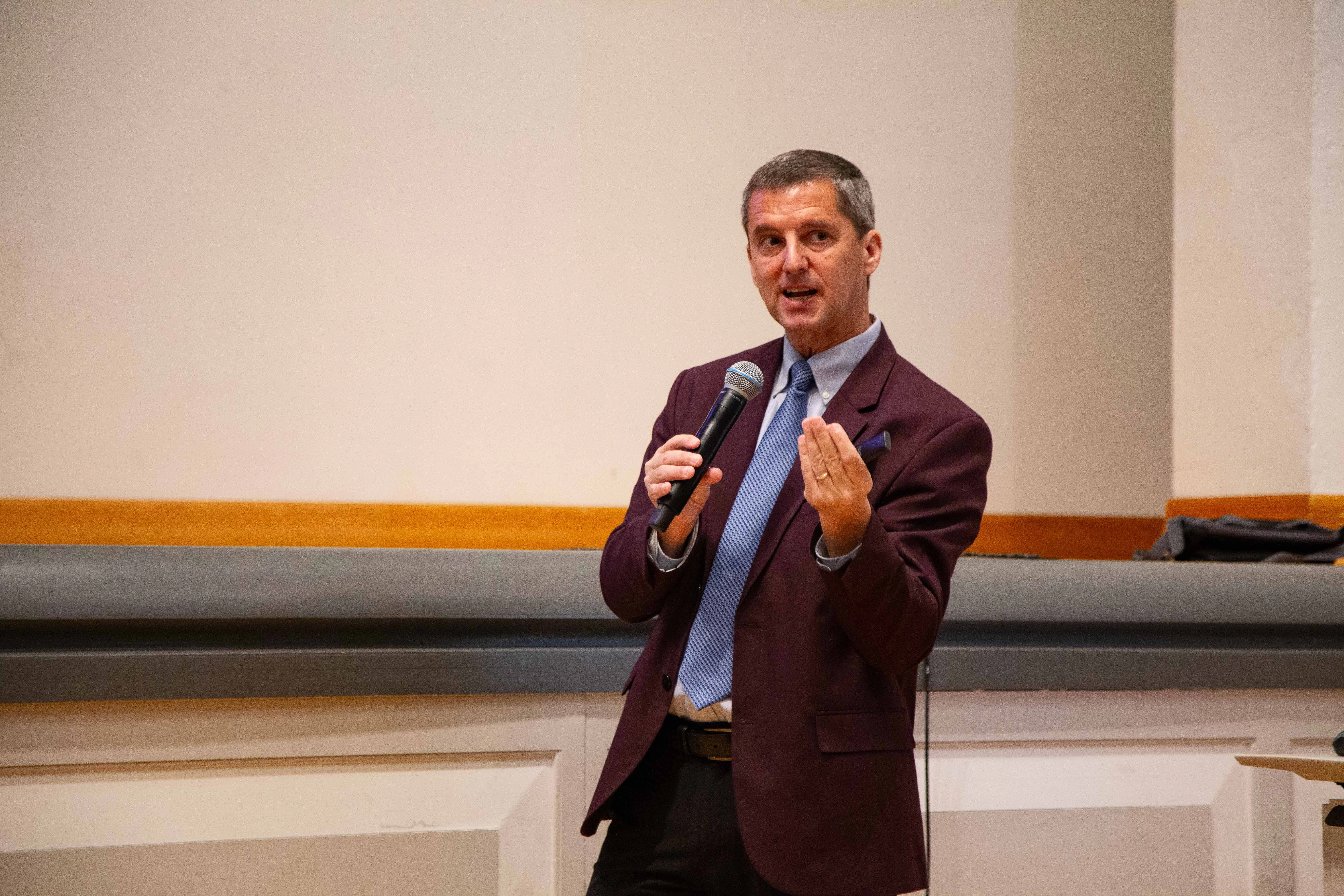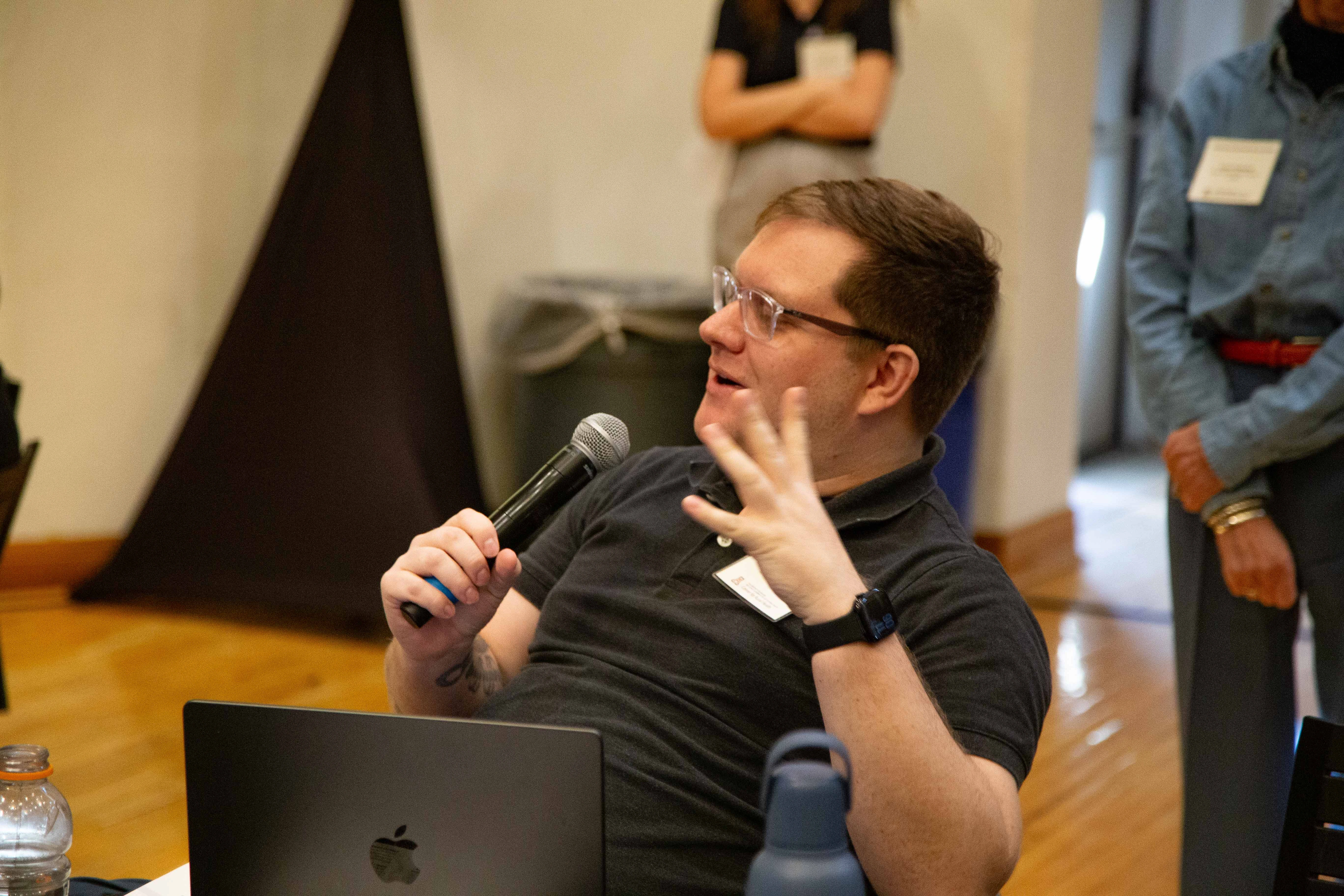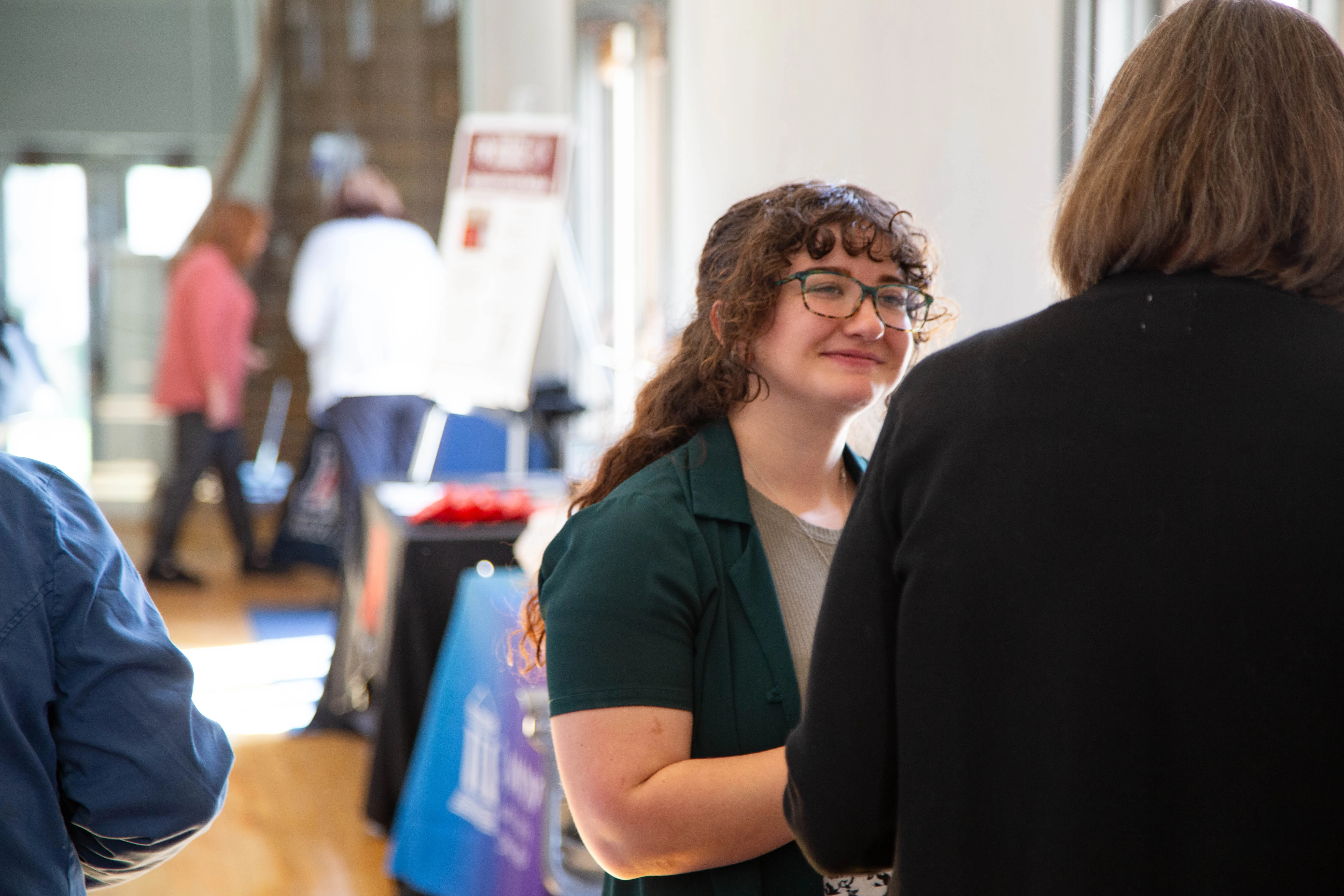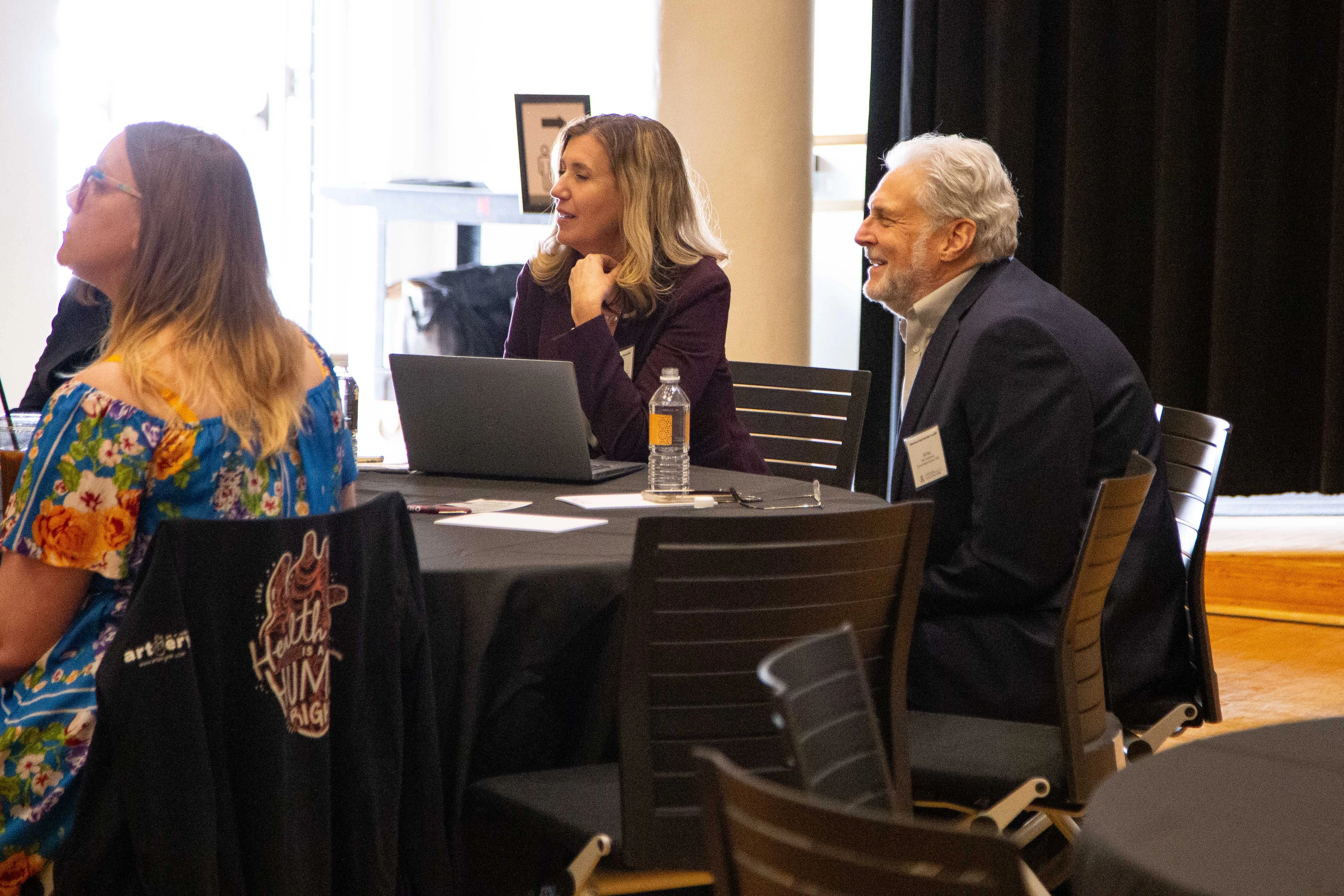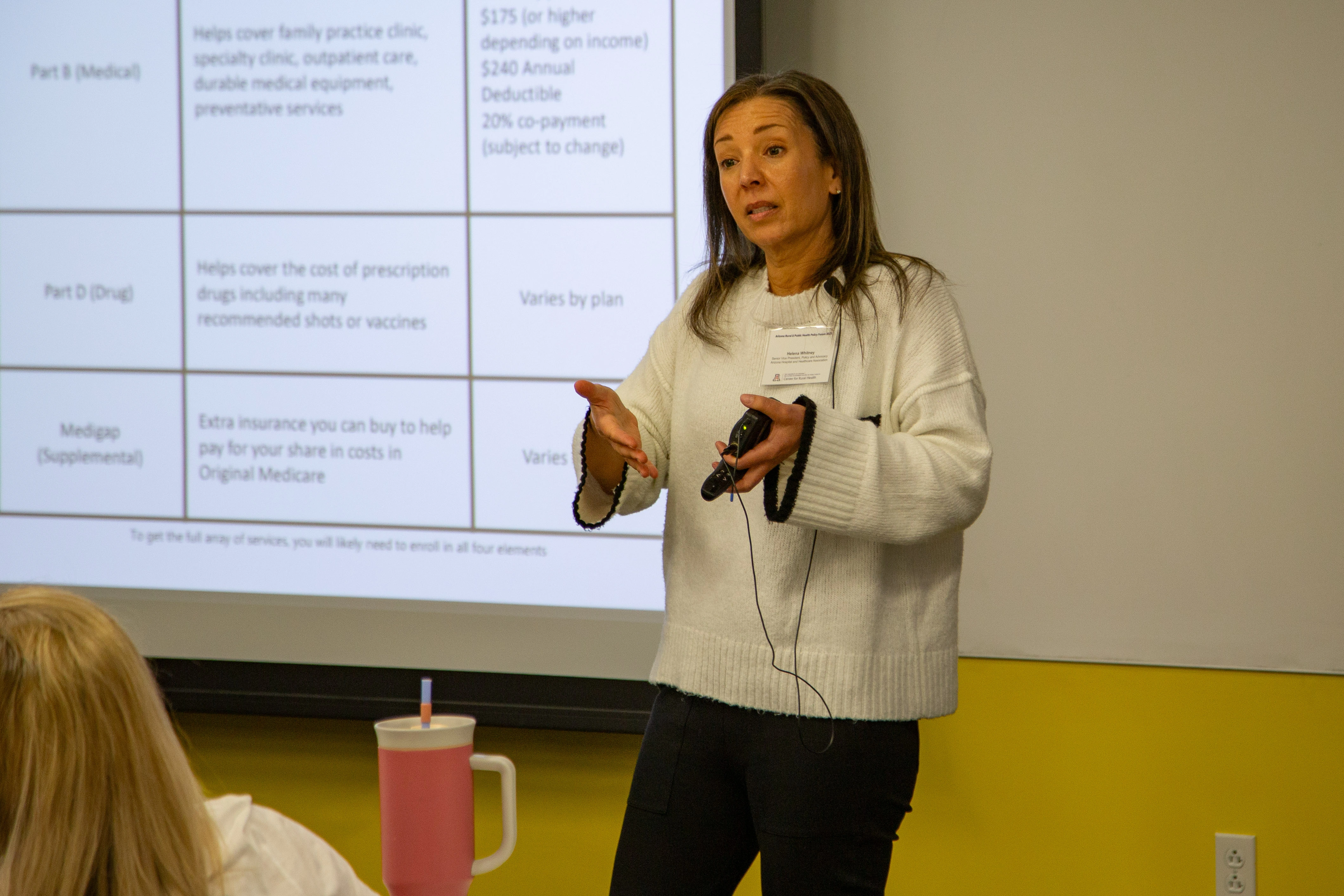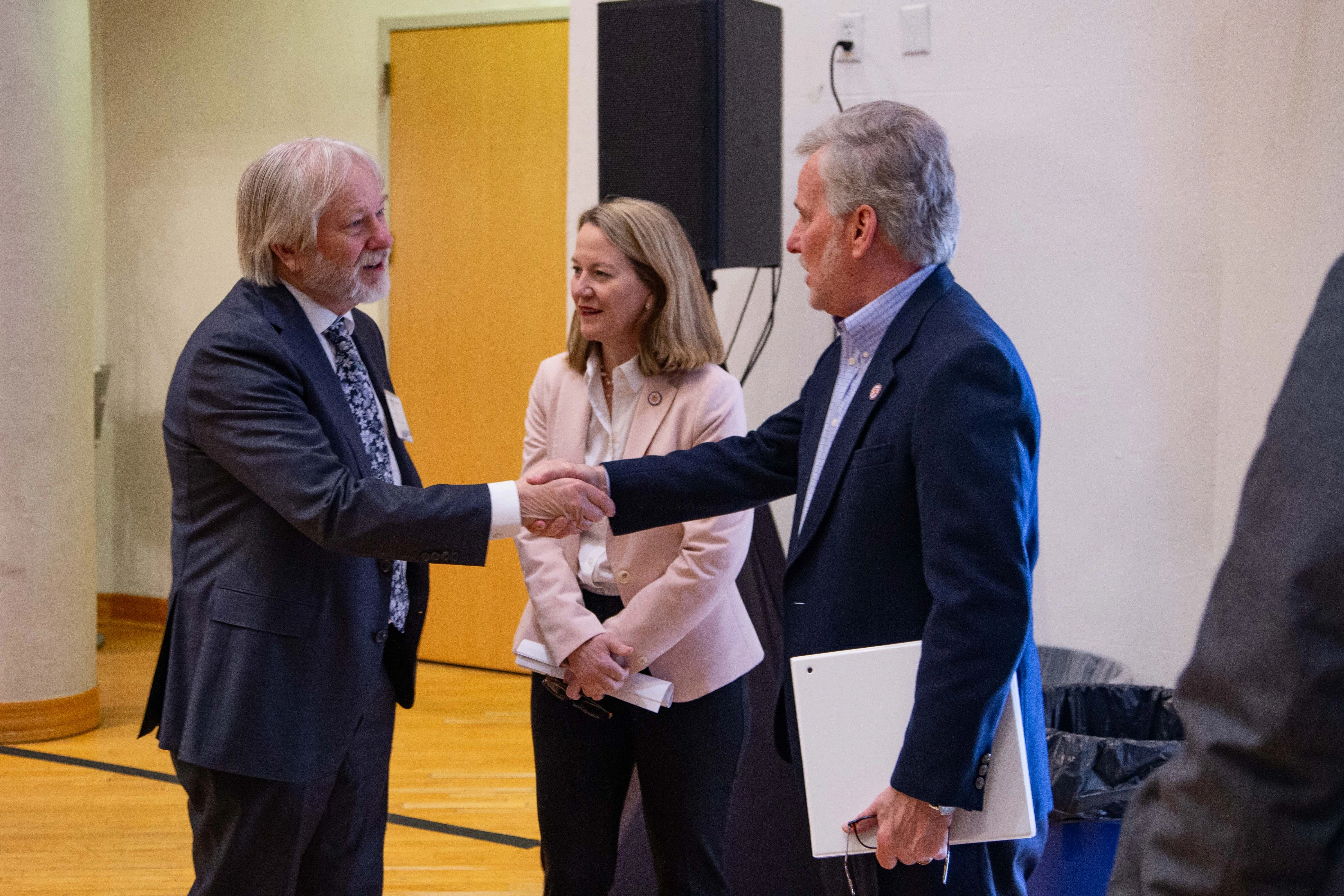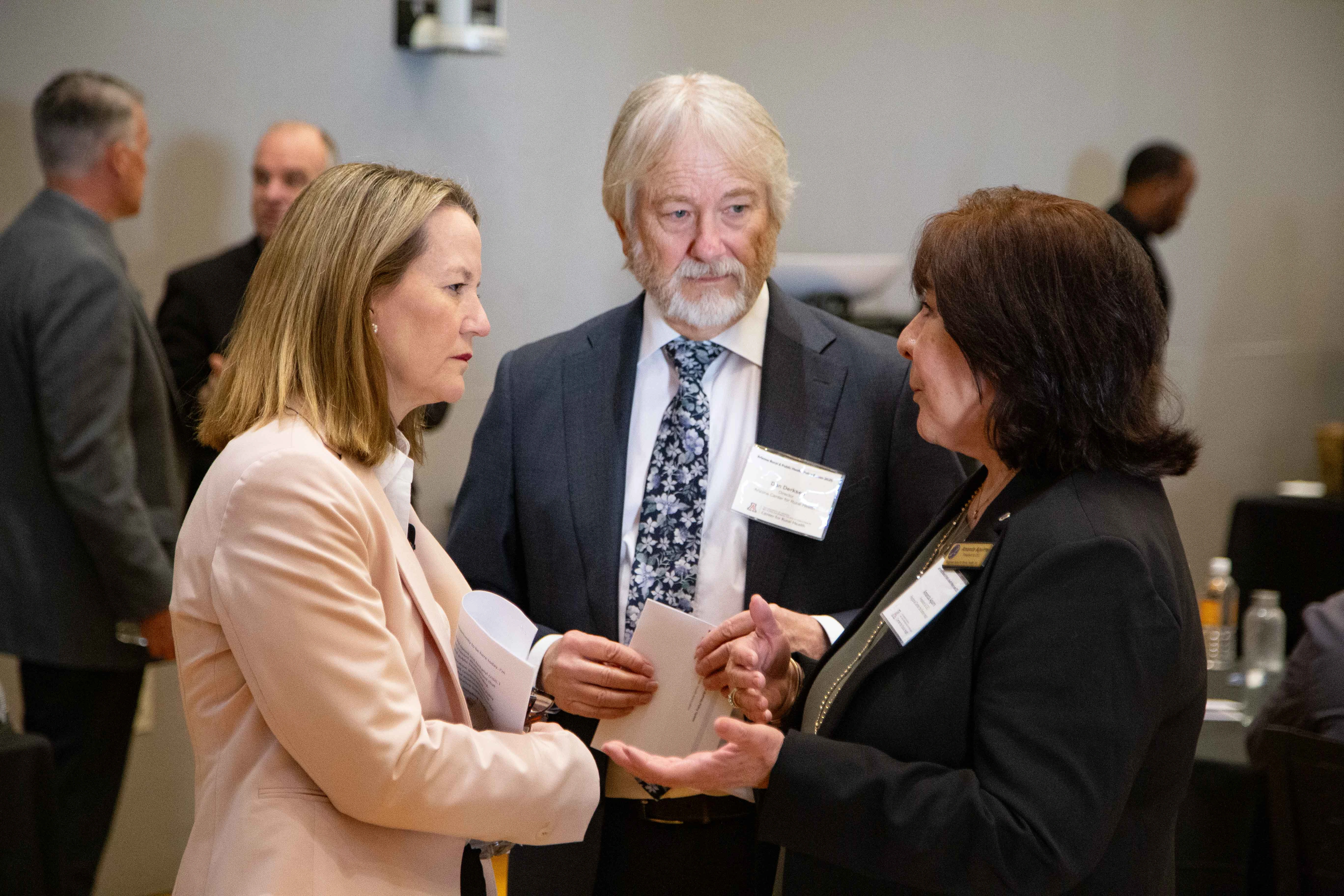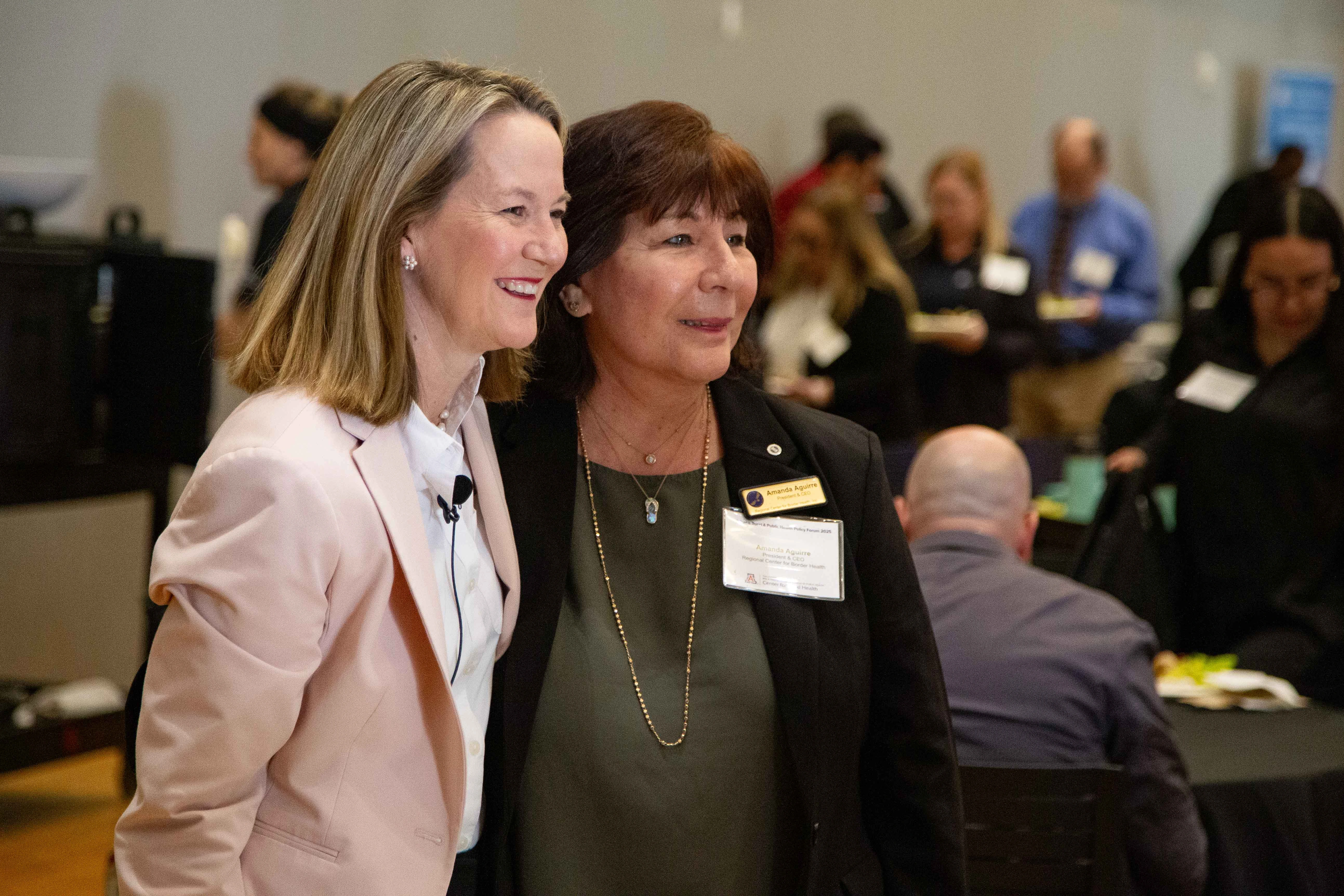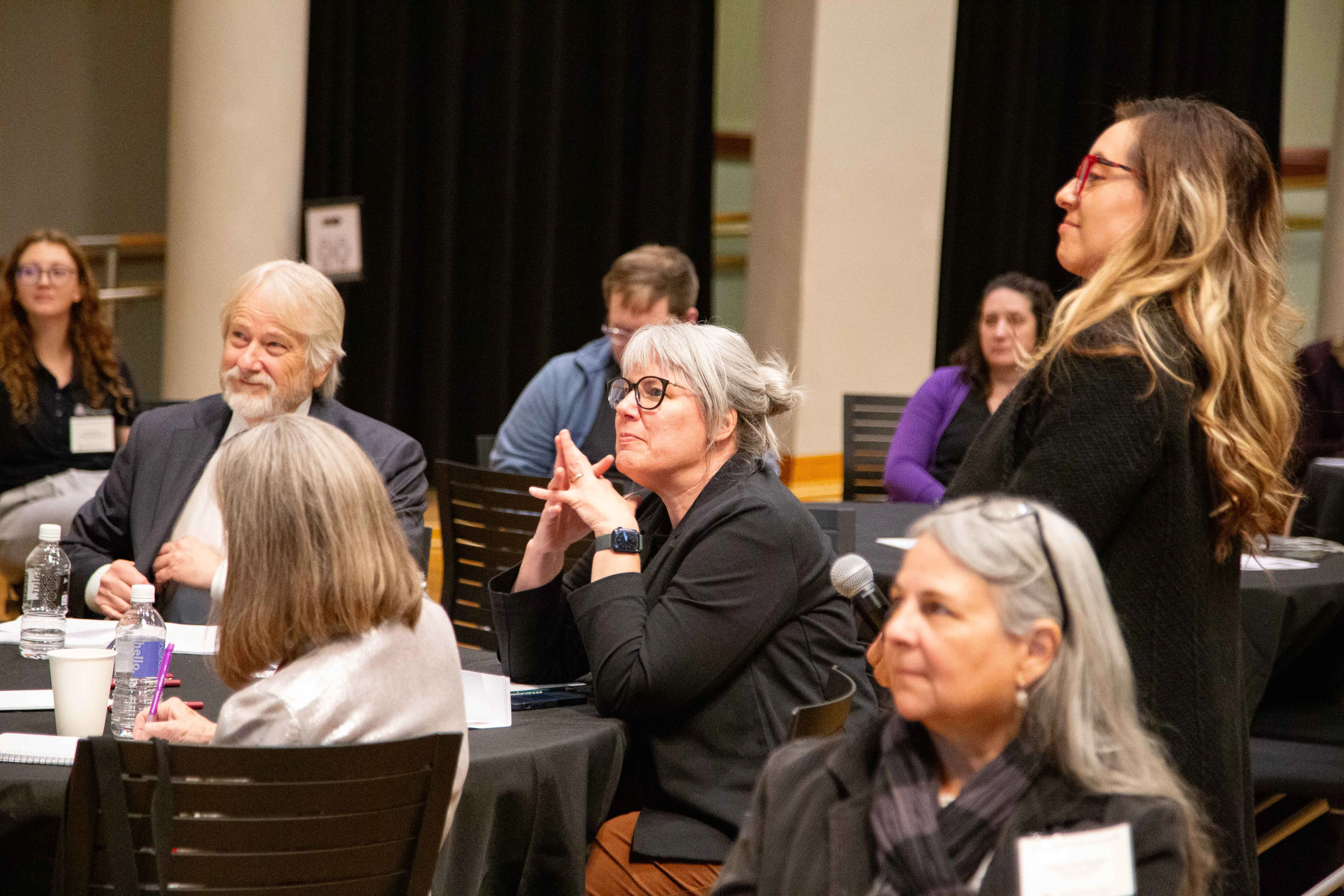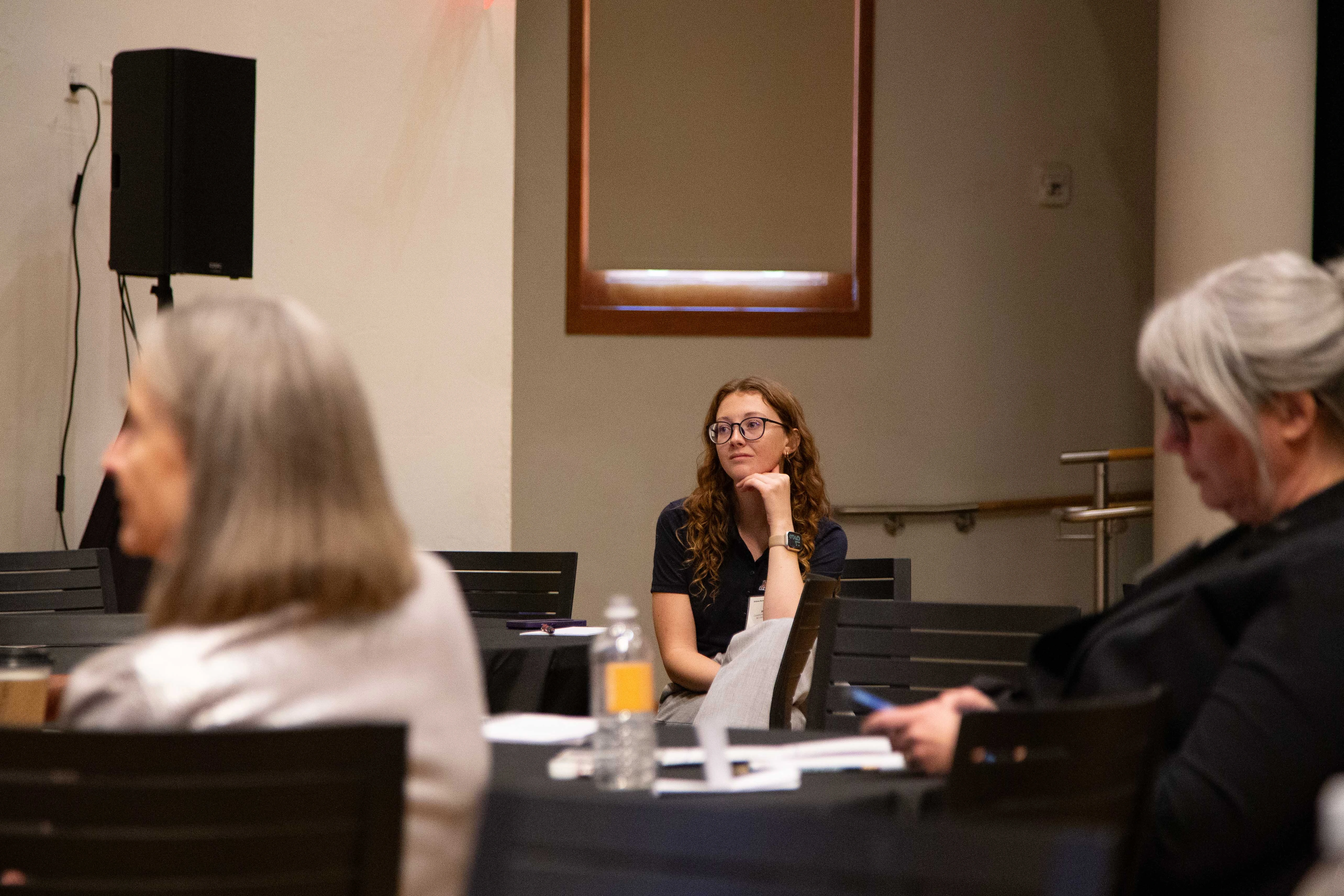In support of improving patient care, these selected activities have been planned and implemented by the Arizona Center for Rural Health and the Western Region Public Health Training Center (WRPHTC). The WRPHTC is jointly accredited by the Accreditation Council for Continuing Medical Education (ACCME), the Accreditation Council for Pharmacy Education (ACPE), and the American Nurses Credentialing Center (ANCC), to provide continuing education for the healthcare team.
Governor Hobbs' administration is addressing health disparities through informed, evidence-based, collaborative policymaking. Update on Governor Hobbs' health policy priorities for 2025 and beyond: how it started / how it's going - how efforts at the Executive level can improve access to affordable, accessible, high-quality care in every corner of Arizona, insights into the Governor's priorities and proposed strategies to improve and sustain rural and public health in Arizona
The 2024 presidential election will have profound impacts on federal health policy and the future of the U.S. Supreme Court. This session will examine the current and projected impacts on federal health agencies, regulatory authorities and oversight, and health priorities, which will have an impact in our state. A close examination of salient health-related cases currently before the U.S. Supreme Court will also be explored with projected outcomes and repercussions for the health of populations.
"Good morning, and thank you for the opportunity to be here today. I’m Attorney General Kris Mayes.
Before we turn to the pressing issue of the opioid and fentanyl crisis, I want to provide an important update on a recent development that affects the future of medical research and public health funding.
Just a week or so ago, the Trump administration announced a policy change that would have slashed indirect cost reimbursements for federally funded research, cutting support for essential expenses like lab space, research equipment, and administrative support.
These cuts threaten critical medical research, including opioid addiction treatment studies and advancements in pain management.
I don’t have to tell you that this would cause enormous harm to Arizona’s universities, research institutions, and hospitals. But along with my fellow attorneys general, I took legal action to stop the cuts from taking effect.
On behalf of the people of Arizona, I sued to block these NIH funding cuts—and we have been successful in securing an initial ruling preventing their implementation.
This means, for now, the funding that supports life-saving medical research will remain in place. And we’ll keep fighting in court to make that victory permanent.
And this issue only underscores just how important it is to protect funding for public health initiatives, which brings me to the reason we are here today—the opioid and fentanyl crisis that continues to devastate communities across our state.
Each of you in this room has seen firsthand the impact of this epidemic. You’ve treated overdose victims, counseled families in distress, and worked to expand services in communities struggling to keep up. You don’t need statistics to understand the severity of this crisis—you confront it every day.
According to the DEA, while overall overdose deaths have declined for the first time since 2018, fentanyl remains the most significant drug threat facing our nation.
In 2023, over 107,000 drug overdose deaths were recorded in the U.S., with nearly 70 percent involving opioids like fentanyl. This is an improvement from past years, but the crisis is far from over.
Here in Arizona, we continue to lose more than five people every day to opioid overdoses – but these are preventable deaths.
In Maricopa County, fentanyl now accounts for 60 percent of all drug-related deaths, a 4,900 percent increase since 2015. And the crisis is not slowing down in rural areas—if anything, and it is exacerbated due to a lack of resources.
Since taking office two years ago, I have made it a priority for my office to work in lockstep with federal law enforcement, the DEA, sheriffs, and local agencies to investigate and prosecute these criminals.
Arizona has become ground zero for the fentanyl crisis—more than half of all fentanyl seized in the U.S. is seized in our state. This crisis has devastated communities, torn families apart, and increased overdose deaths.
Since I took office, my office—with support from local and federal law enforcement partners—has seized 25 million fentanyl pills in Arizona.
We have also seized over 405 pounds of fentanyl powder—enough for nearly 92 million potentially lethal doses.
But despite these interdiction efforts, rural communities across our state continue to bear the brunt of this crisis. Last year, I worked closely with the Legislature to craft an expenditure plan to best use these dollars to support Arizonans in need.
I traveled across the state from Kingman to Bisbee to hear what rural communities needed from the state. The expenditure plan we put together identified urgent needs that should have been funded, including:
$15 million for detox centers in rural counties like Graham, Mohave, and Cochise, where people struggling with addiction often must travel hours to access life-saving treatment.
- $10 million to expand medication-assisted treatment (MAT) in rural areas, a proven method of helping people stay in recovery.
- $600,000 for naloxone vending machines in courthouses statewide and to ensure every school nurse has access to Narcan.
- $15 million for opioid prevention training for school counselors, so they could identify and intervene with at-risk students before addiction takes hold.
- $9 million for regional emergency shelter programs to provide shelter to adults and families experiencing homelessness.
These programs were designed with community input and would have saved lives, kept families together, and made our communities safer and healthier.
But instead, the legislature and governor swept $115 million of these opioid settlement funds to cover a budget deficit in the state’s prison system for Hepatitis C treatment.
Don’t get me wrong, funding the healthcare of those incarcerated is a critical need and responsibility of the state – but not at the expense of rural Arizonans struggling with addiction.
And to make matters worse – the vendor that was chosen to receive opioid settlement funds to pay for the Hep C treatment just happened to be Cardinal Health – one of the very defendants that caused the opioid crisis here in Arizona and across the country.
To put it mildly, this was not what these funds were meant for. The opioid settlement was secured to help communities recover from the devastation caused by opioid manufacturers and distributors—not to balance state budgets.
When this happened, I called it outrageous, and I stand by that today. I also sued to stop it but unfortunately, was not successful in preventing the funding sweep given the Legislature’s appropriation power.
But every Arizonan should be asking why this money wasn’t protected and why the legislature and governor allowed it to be misused.
Every dollar that was diverted was a dollar that could have been used to save lives in our rural communities.
And we must ensure that future opioid settlement funds are protected and used for their intended purpose: fighting the opioid epidemic. And it is my promise to you that I will fight with everything I’ve got to make sure these funds are not diverted in this year’s budget.
I will continue to fight to make sure opioid settlement funds are used the way they were intended. Because every Arizonan—no matter where they live—deserves access to treatment and recovery.
Thank you for your work and your dedication. It is because of people like you that lives are being saved, and I am honored to stand with you in this fight."


